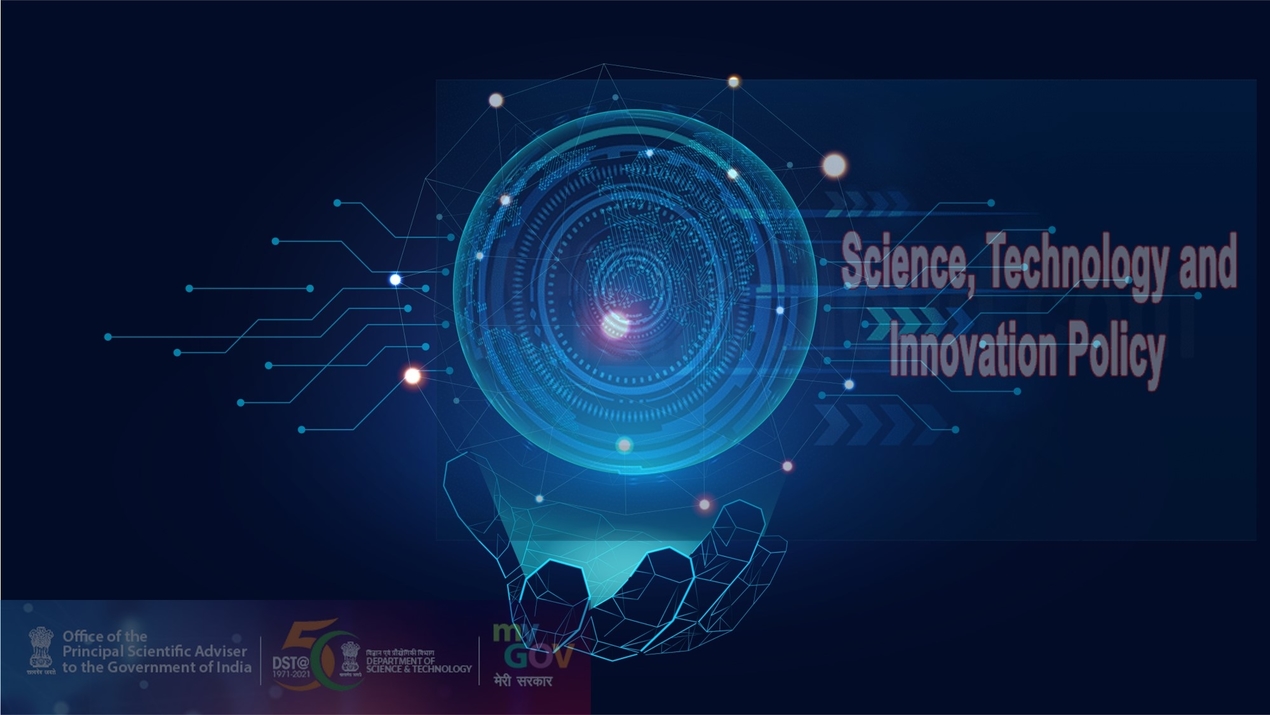
India is gathering input to discuss and finetune its Science, Technology and Innovation Policy (STIP) through numerous consultations. Most recently, at one such consultation, indigenisation of technology, patent and IP rules for grassroots innovators was discussed.
The Uttar Pradesh Council of Science & Technology and the Babasaheb Bhimrao Ambedkar University (Lucknow) in association with the Department of Science & Technology organised the virtual consultation meeting with the distinguished personalities of Central India.
Eminent scientists, thought leaders, academicians and industry experts of highlighted the need for indigenisation of technology, focus on traditional medicine system like AYUSH, the role of states in reaching out on rural issues, patent and IP rules for grassroots innovators at the fourth STIP post-draft consultation titled “NitiCharcha”.
Dr. Akhilesh Gupta Adviser & Head STIP Secretariat, DST, leading the consultation, explained that COVID 19 has brought a new dimension to science, technology, and innovation in India. In this scenario, science has clearly emerged as a solution to societal problems, especially health. It has been allowed for critical learning for society at large and STI ecosystem.
In these extraordinary times, the government undertook the first-ever STIP policy formulation where interstate consultation was undertaken, reaching out to a wide range of stakeholders including 82 departments of the Government of India.
The digital landscape over the last few years has seen the emergence of disruptive and impactful technologies like AI, machine learning and quantum computing. Most nations across the world have been accelerating their digital transformation strategies and rapidly adapting all these technologies.
The new Science, Technology and Innovation Policy, too, focuses on the uptake and deployment of these cutting-edge technologies through a collaborative process of the three verticals of industry, academia and R&D institutions working together.
Professor Sanjay Singh, Vice-Chancellor, BBAU, suggested that the new Science, Technology and Innovation Policy should focus on translational research work that can address and meet critical needs of the society. He likened the process to a relay race where the outcomes of one stage are taken forward from one end to another to reach the final conclusion.
Contributors from varied domains of expertise debated about a range of topics like priority areas of focus for research, the development of an industry and academia interface, bringing industry on board for taking technology to market from an early level, providing more autonomy to science institutions, inclusive science, addressing of issues like ageism in the new policy, systematic funding system to give due importance to equity and inclusion, introducing flexibility in work timings, upgrading Indian journals, creation of cross-disciplinary platforms of science, technology and engineering.
In addition to this consultation, science attaches, science diplomats and representatives of foreign missions in India from about 20 countries discussed best practices for shaping India’s upcoming science policy at a round table discussion organised for to gather more input on draft Science Technology and Innovation Policy.
Dr. Akhilesh Gupta shared that the policy is unique compared to the previous science policies in terms of being extremely bottom-up with inputs from people at a grassroots level, decentralised with the involvement of a diverse stakeholder base, experts-driven with the participation of experts from a range of disciplines, inclusive with participation from people from all walks of life and evidence-based.
He confirmed that a proactive approach would be taken to strengthen the existing international partnerships and create new partnerships with a forward-looking international STI engagement framework and ‘S&T for Diplomacy’ as well as ‘Diplomacy for S&T’ will be promoted.
The virtual consultation was attended by science attaches, diplomats, and representatives from Afghanistan, Bangladesh, Canada, Denmark, European Union, France, Italy, Japan, Mexico, Norway, Portugal, Russia, British High Commission, United States of America, and others
The representatives highlighted the need to reconnect with Indian diaspora for nurturing action towards their host countries and gave suggestions for implementation of ‘One Nation One Subscription’. They also suggested the need for appointing Chief Scientific Advisor in each state headed by the Federal Chief Scientific Advisor and including STI as a key element in every societal engagement.
An open attitude for collaboration with international partners in research & development, selective support to research infrastructure based on evaluation criteria, aligning current and future efforts towards decentralisation, targeted action plan for implementation of the policy were also proposed.
















